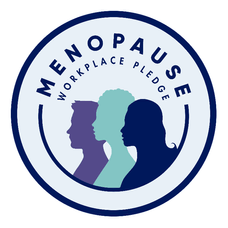Your employer brand has always been important. But post-pandemic, getting it right is now imperative.
As businesses look to bounce back from the pandemic, and with lots of staff and skill shortages, now is a key time for organisations to carefully manage their employer brand strategy with an eye on the future and longer-term goals.
How organisations respond to today’s world of work will have long-term implications for their employer brand
Businesses need to keep existing employees engaged and communicating in a human way is an important way to do so. If your business reacted to the Coronavirus pandemic in an authentic way, the logic suggests that people are more likely to want to work for your business in the future.
The digitisation of the workplace
Rapid digital transformation is happening across almost every industry with businesses across the globe using technology to help bring people together. Workplace conversations have shifted online, both within businesses and through trusted networks like LinkedIn to share and view content.
So rather than shrink back for fear of saying the wrong thing, it’s important to be part of the conversation, be transparent and share how your organisation and your people are managing post-pandemic. This is an ideal opportunity to showcase the best of your company and to connect with your audience on a more human, organic level.
Four content themes to consider
1. Executive leadership response
What are your people at the top doing to reinforce company values during this economically challenging time? How did they lead during the pandemic and how they leading now during times of financial struggle, while communicating a sense of community and shared purpose?
Encourage your leaders to share stories of hope and optimism about the future, both internally and externally. Video content is a great way to engage in this way and showing senior people in a less formal context makes them more approachable and accessible.
2. Corporate social responsibility
Are you showing solidarity with other areas of the community, fundraising or offering support in other ways? If so, share your stories.
3. New ways of working
Have you streamlined a recruitment process that reintroduces personalisation since the pandemic accelerated adoption of entirely virtual hiring activity?? How are you encouraging virtual learning and doubling down on wellbeing initiatives?
4. Culture
The best people to tell your brand story and showcase your culture? Employees. Loosen your grip a little by trusting your employees to set their own narrative, albeit in an interesting and coordinated way. A story series based around a particular # for example is a creative way to drive and direct employee engagement via social.
While this approach may unsettle some business leaders, content consumption behaviour has changed substantially over the last decade.
Instead of trying to gain full control over the narrative, brands are now learning to harness raw and unpolished content channels such as Instagram, Snapchat and TikTok for their corporate brand and employee advocates. Even on LinkedIn, we’re seeing raw, realistic content come to the fore as people work remotely from their sofa or garden shed.
Authenticity, authenticity, authenticity
Whatever you choose to focus on, authenticity is vital. Your employer brand content needs to be both personal to your company and relevant to your audience, otherwise, it will fall flat.
This is also a great opportunity to sense check the validity of your Employer Value Proposition and your company values if you haven’t yet established one. Are they authentic, do they hold up, are you behaving and communicating consistently with the values you’ve expressed or is it time for a re-think?
Above all else, be true to your organisation and focus on the quality of your employer brand content, not the quantity.














